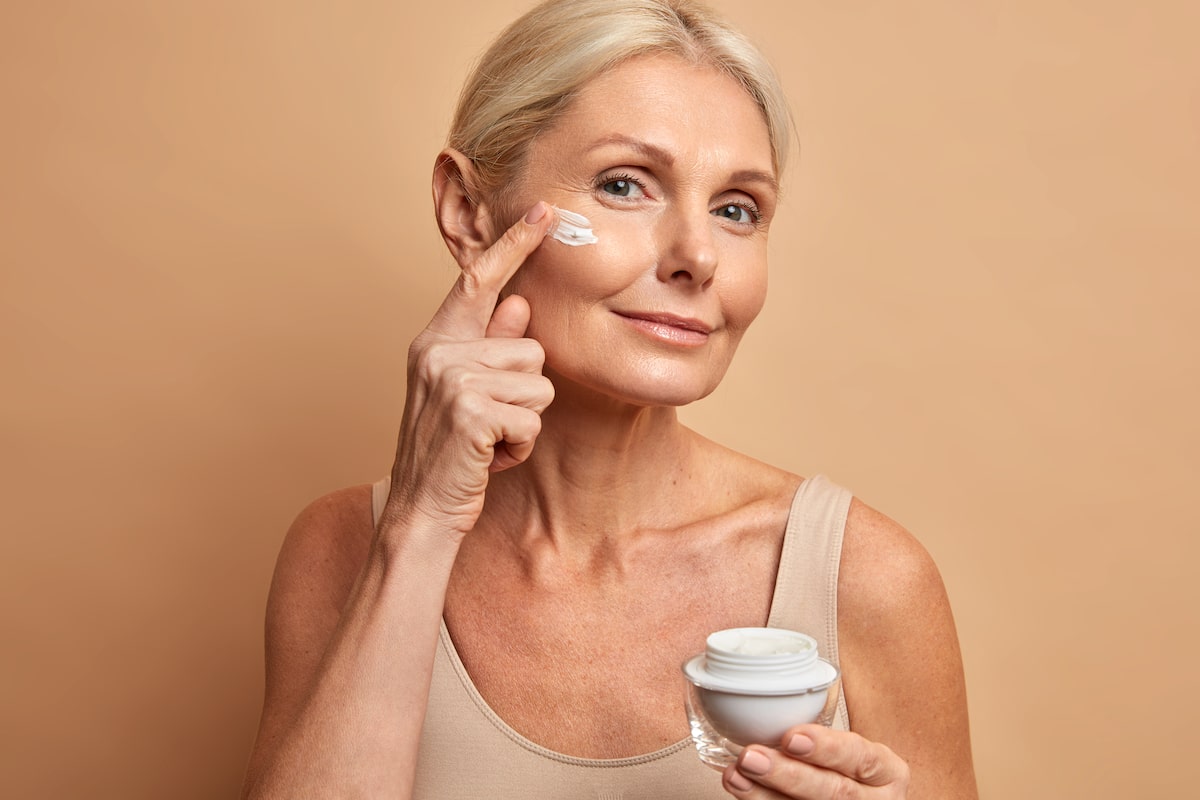Antioxidants And Anti-aging - Unveiling The Secrets Of Youth
Enter antioxidants and anti-aging: a dynamic duo that promises to combat the signs of aging by neutralizing harmful free radicals.
Author:James PierceReviewer:Karan EmeryMar 01, 2024262 Shares29K Views

In the perpetual quest for the fountain of youth, individuals have long sought solutions to slow down the inevitable aging process. One promising avenue that has garnered significant attention is the role of antioxidants in the battle against aging. As our bodies age, they are exposed to oxidative stress, a phenomenon linked to the deterioration of cells and tissues.
Enter antioxidants and anti-aging,a dynamic duo that promises to combat the signs of aging by neutralizing harmful free radicals. In this article, we will delve into the fascinating world of antioxidants and their potential to defy the hands of time, exploring the science behind their anti-aging properties and how they might hold the key to a healthier, more vibrant life
What Are Antioxidants
Antioxidants are compounds that play a crucial role in protecting our cells from damage caused by free radicals. Free radicals are unstable molecules produced in our bodies as a result of various natural processes, such as metabolism, as well as external factors like pollution and UV radiation. These free radicals can cause oxidative stress, which may contribute to aging and various diseases.
Antioxidants work by neutralizing free radicals, preventing them from causing damage to our cells. They achieve this by donating an electron to stabilize the free radical without becoming unstable themselves. Common antioxidants include vitamins C and E, beta-carotene, and minerals like selenium. These can be obtained through a balanced diet that includes fruits, vegetables, nuts, and whole grains. The presence of antioxidants in our body helps maintain cellular health and is associated with potential benefits for overall well-being, including potential anti-aging effects.
Connection Between Antioxidants And Aging
The link between antioxidants and aging is like a puzzle where oxidative stress plays a crucial role in the aging process. Oxidative stress happens when there's an imbalance between two things in our body: free radicals and antioxidants. Free radicals are like troublemakers – they're molecules that can cause damage. They come from things like sunlight, pollution, and even our own body processes.
Now, antioxidants are the superheroes that come to the rescue. They're molecules that neutralize these troublemaking free radicals. There are different types of antioxidants, some work inside our cells (enzymatic), and others come from the food we eat (non-enzymatic). The job of antioxidants is to stabilize free radicals by giving them what they're missing.
When oxidative stress is too high, it can speed up the aging process. This happens at the cellular level, affecting important parts of our cells like DNA. It's like our cells start to wear out faster. Scientific studies have found that this oxidative stress is not just a part of getting older; it's also linked to diseases and how our bodies break down over time.
Antioxidants, in a way, act as bodyguards against this aging process. They protect our cells from the damage caused by oxidative stress. Some antioxidants are famous for their anti-aging benefits, and they're often used in skincare products to keep our skin healthy and prevent it from aging too quickly.
Antioxidants For Anti-aging
Antioxidants come in various forms, each playing a crucial role in neutralizing free radicals and combating oxidative stress. Here are the types of antioxidants:
- Vitamin C (Ascorbic Acid) - Vitamin C is a water-soluble vitamin found in many fruits and vegetables. It acts as a potent antioxidant, protecting cells from damage caused by free radicals. Citrus fruits, strawberries, bell peppers, and broccoli are rich sources of vitamin C.
- Vitamin E (Tocopherols and Tocotrienols) - Vitamin E is a fat-soluble vitamin that exists in different forms, including alpha-tocopherol. It protects cell membranes from oxidative damage and works well in conjunction with vitamin C. Nuts, seeds, vegetable oils, and leafy greens are good sources of vitamin E.
- Beta-Carotene - Beta-carotene is a type of carotenoid, which is a group of pigments with antioxidant properties. It is a precursor to vitamin A and is found in orange and yellow fruits and vegetables, such as carrots, sweet potatoes, and apricots.
- Selenium -is a crucial trace mineral that plays a pivotal role in safeguarding the body against oxidative damage. Abundantly present in dietary sources such as Brazil nuts, fish, and whole grains, selenium forms a vital partnership with enzymes to fortify the cellular defense mechanism.
- Flavonoids- Flavonoids is a diverse group of plant compounds with health-promoting properties, encompass two notable members: quercetin and anthocyanins. Quercetin is abundantly found in common foods like apples, onions, and tea, quercetin is a flavonoid renowned for its anti-inflammatory properties. While anthocyanins is present in foods such as berries, red cabbage, and eggplant. Anthocyanins are responsible for the rich red, blue, and purple colors of these items.
- Glutathione - Glutathione is a powerhouse within the body's antioxidant defense system, is a remarkable molecule that contributes to cellular protection and overall health. It is naturally produced in the body and can also be obtained from certain foods, with notable sources including asparagus, avocado, and spinach.
- Melatonin- Melatonin is often recognized for its pivotal role in regulating sleep-wake cycles, serves a dual purpose as an antioxidant. While it is predominantly associated with promoting restful sleep, melatonin also contributes to the body's defense against oxidative stress. Small amounts of melatonin can be found in specific foods, with cherries and tomatoes being notable sources.
Antioxidants And Anti-aging - FAQ
Do Antioxidants Help With Anti-aging?
There is research showing antioxidants can improve cell function, increase collagen production, improve elasticity, create healthier, younger skin cells and reduce sun damage but the improvement takes time, it isn't going to be overnight.
What Supplements To Take To Look Younger?
Vitamins C, E, and selenium have been proven to make a difference. Add more of these minerals to a daily diet by eating whole grains, seafood, dairy products, and citrus fruits. If changing the diet isn't making enough of a difference, speak with a healthcare provider about taking a supplement.
Which Fruit Is Best For Face Glow?
Eat these fruits for a glowing skin. Berries: Blueberries, strawberries, raspberries, and blackberries are all rich in antioxidants, particularly vitamin C and anthocyanins. Antioxidants combat free radicals, reducing oxidative stress and inflammation in the skin.
Wrap Up
In the pursuit of graceful aging and enhanced well-being, understanding the impact of antioxidants and anti-aging is paramount. As we've delved into the role of antioxidants in combating oxidative stress, it becomes evident that these compounds possess the potential to be invaluable allies in our quest for a healthier and more vibrant life.
By incorporating antioxidant-rich foods, supplements, and mindful lifestyle choices, individuals may find themselves better equipped to navigate the aging process with resilience. Embracing the power of antioxidants not only offers a path to mitigate the effects of oxidative stress but also opens doors to a future where the aging journey is marked by vitality, energy, and an enduring sense of well-being.

James Pierce
Author

Karan Emery
Reviewer
Latest Articles
Popular Articles
